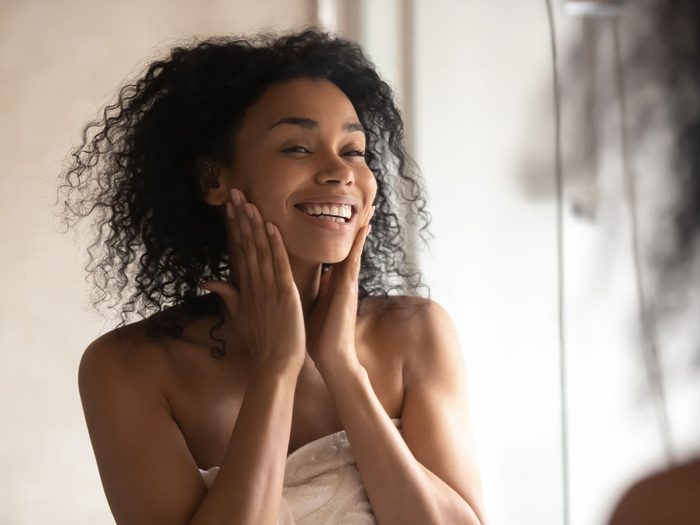
Skin care doesn’t have to be expensive
If there’s one thing dermatologists agree on, it’s that you can have a glowing, youthful complexion without overspending. These are the tricks they swear by—and the anti-aging myths they want you to avoid.
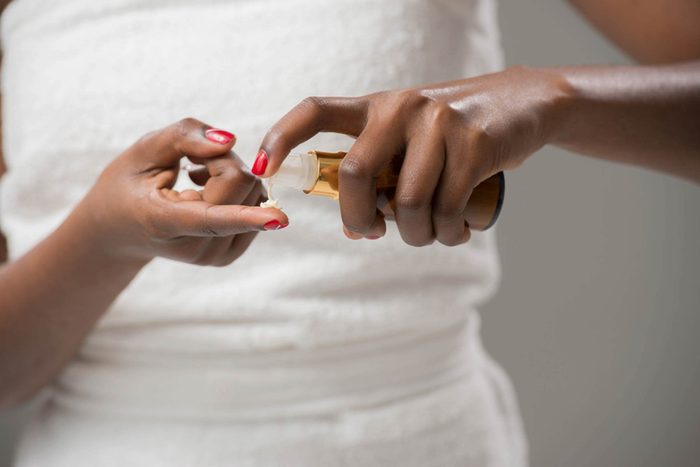
Myth: Luxury brands are better
Truth: Price does not always mean quality. Just as you try to shop organic and invest in timeless bags or suits that go the distance, you may think high-end beauty products are better than drugstore alternatives. But Dendy Engelman, MD, a dermatologic surgeon at Manhattan Dermatology & Cosmetic Surgery, begs to differ, explaining that a hefty price tag doesn’t ensure a product will be more effective, or that it even has different ingredients than what you could find in drugstore equivalents. “There are some great drugstore products that can produce good results, and purchasing the cheaper (yet equally effective) products can really cut costs in the long term,” she says. “The best way to choose a skin-care product is to look at the type and concentration of ingredients first and the manufacturer second.”
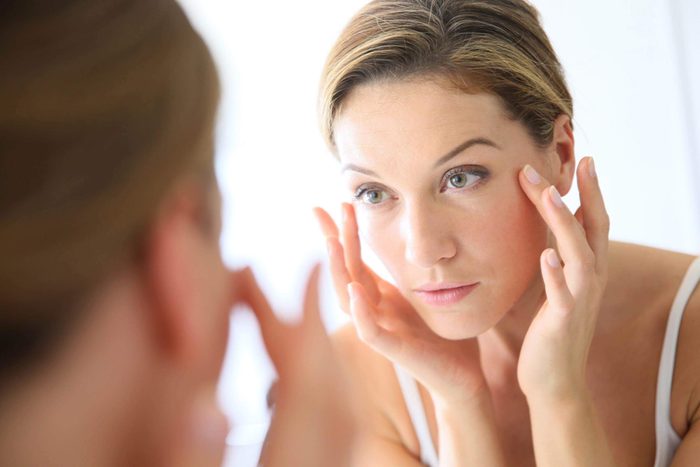
Myth: Anti-aging products work immediately
Truth: If you apply under-eye cream and a retinol formula moisturizer before bedtime, and you hope to see those wrinkles disappear by morning, you might be in for a different kind of wake-up call. Instant gratification is a pipe dream we all harbour, but, says Dr. Engelman, patience is the key to success. This is especially true when you’re trying an anti-aging product for the first time or switching over to a new formula. “All skin-care products take four to eight weeks to really induce measurable skin changes,” she explains. One smart way to see if a product is impacting your specific enzymes is to take a bare-faced selfie in natural light once a week over two months, so you can see what’s transformed over time.
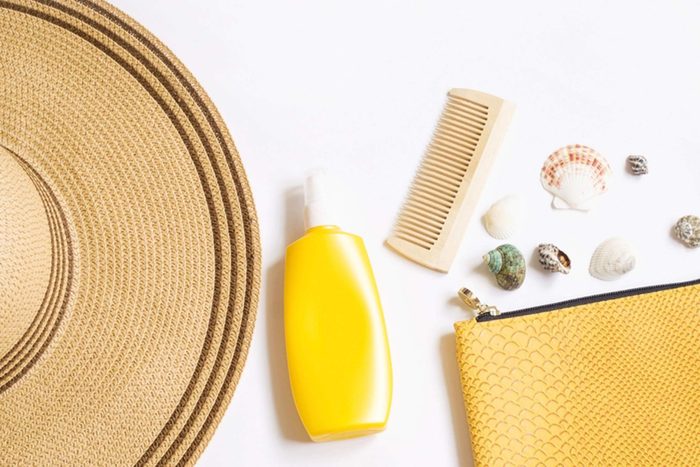
Myth: Sunscreen is just a recommendation
Truth: When you wake up and promptly ask your Google Home or Amazon Echo for the day’s forecast, cloudy skies may tempt you to skip sunscreen on your face. Or, if in the dead of winter, you tuck away that 30 SPF because it feels unnecessary, you’re aging your skin. As Dr. Engelman explains, sun exposure for a mere 10 to 15 minutes a day adds up over years and can cause significant sun damage and accelerated aging. “These brief moments can include driving with the sunroof open or walking around outdoor shopping centers during peak sun hours,” she explains. “Even under cloud cover, it is possible for the sun to harm your skin and eyes and cause long-term impact.” Wear sunscreen every single day regardless of the weather, she says, especially between 10 a.m. and 4 p.m., when your skin is most susceptible to UV rays.
(Psst: These sunscreen myths make dermatologists cringe.)
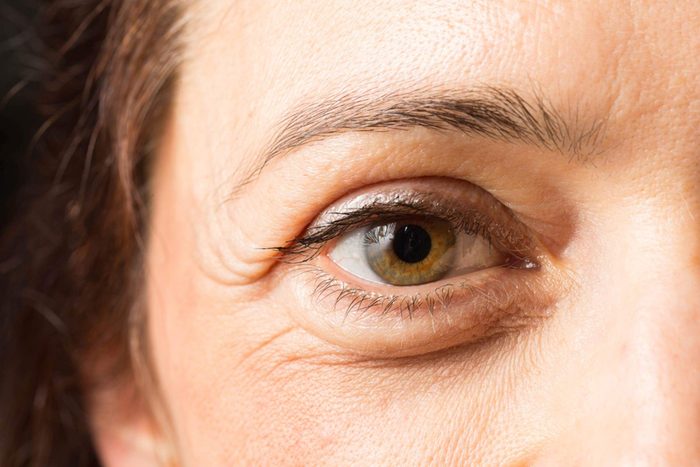
Myth: Aging is just about wrinkles
Truth: If you have stubborn forehead wrinkles (since you concentrate so much, of course) or frown lines between your eyes that give you a resting angry face, you may have considered Botox as a way to make these signs of aging less dramatic. While Dr. Engelman notes that regular injections of a neurotoxin such as Botox (also Xeomin) will decrease the intensity and the depth of these lines, she says it’s a myth that it’s only about physical appearance. “You feel better because your face looks happier and ultimately it feeds back to the brain that you feel happier,” she says.
(If you’re considering getting Botox, read this first.)
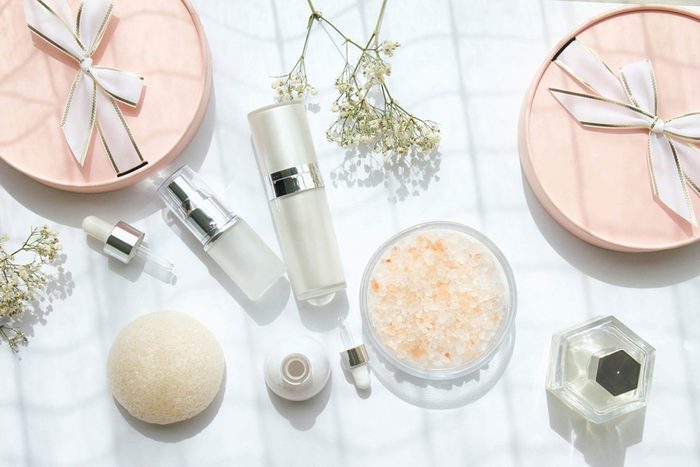
Myth: It’s best to use every product in a skin-care line
Truth: When it comes to anti-aging products, less can be more. “So many patients come into my office with redness and irritation that can be traced back to their anti-aging products,” explains Janet H. Prystowsky, MD,dermatologist and president of Livad Skin Care. Instead of trying to be comprehensive and apply as many creams, serums, and moisturizers to your face as you can find—which is likely to cause redness and irritation, Dr. Prystowsky recommends starting slow and natural, giving your skin a chance to adapt to the new regimen. From there, you can figure out the ideal concoction that works for you. (These are the worst pieces of skin care advice dermatologists have ever heard.)
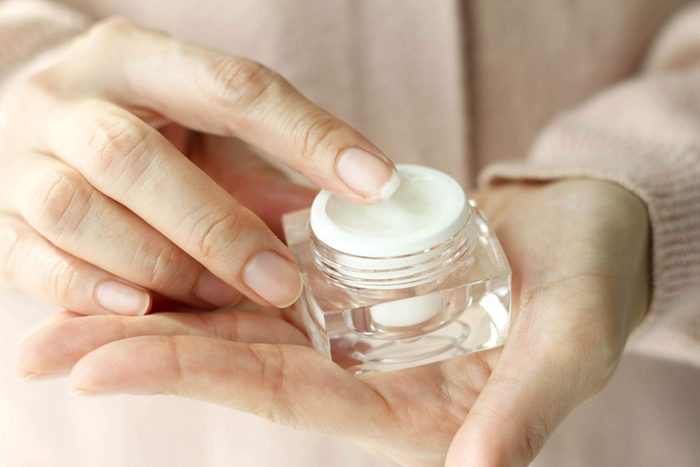
Myth: You should use retinol every day
Truth: Though retinol is an effective way to help your skin shed a layer of skin and reveal a smoother zone below, Dr. Prystowsky says using too much retinol too frequently can be damaging. Not only is it a harsh ingredient that should be avoided during the summer since it makes your skin more susceptible to sun damage, but when used too often, it may become less effective. “Retinol only works well in small doses. Any more, and you’re asking for trouble,” she says. She also recommends seeking anti-aging formulas that feature vitamin A as a star ingredient, which is a more gentle way to slough away dead skin cells.
(Psst: This is the best exfoliator for your skin type.)
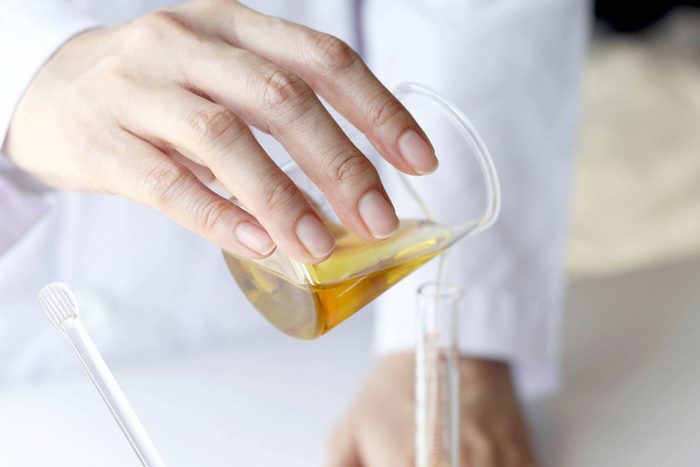
Myth: You can DIY effective anti-aging products
Truth: The fountain of youth isn’t in your kitchen. When it comes to DIY treatments, Dr. Prystowsky warns, “You don’t know what allergens, irritants, or organisms have found their way into your ingredients and kitchen,” she says. “A lot of recipes call for ingredients that simply aren’t safe to use on skin,” she says. If you happen to stumble on a DIY anti-aging mixture that seems simple enough, Dr. Prystowsky says to take your Google search a step further and see if the product is already on shelves somewhere. “Maybe an anti-aging cream with blackberry extract and almonds already exists in stores. If the recipe claims are true, shouldn’t the real product be better?” she asks. (Find out how dermatologists wake up with younger-looking skin.)

Myth: A tan makes you look younger
Truth: You already remind your children and your pals that not everything on Instagram is real and that photos are often airbrushed, so why are you still subscribing to the notion that a tan means youth—or health? Stanley Kovak, MD, a cosmetic physician, explains while many women think a sun-kissed glow makes them more attractive, a tan is actually injured skin trying to protect and heal itself. “A tan is localized swelling, which gives the initial appearance of prettier skin,” he says. “However, when the initial glow dissipates, reality sets in and sun damage appears with a drier, less moist skin resulting in increased wrinkles and sunspots or blotchiness.” If you’re seeking that warm tone, consider a natural spray tan before a big event or an at-home formula you can apply over time, minus the UV rays.

Myth: Aging is determined by your genes
Truth: You might think age has everything to do with your genetic pool. (And it’s true that your mom’s health says a lot about your own.) But while DNA does play a role, so does your environment, according to Arash Akhavan, MD, founder of the Dermatology & Laser Group in Midtown Manhattan. In addition to sun, being anxious and overworked to the max all the time doesn’t just age your soul, but your skin too. “Stress causes elevated cortisol levels in our blood, leading to loss of collagen and elastin tissue,” he says. “Practice stress-relieving activities such as yoga or meditation as part of your anti-aging regimen.”
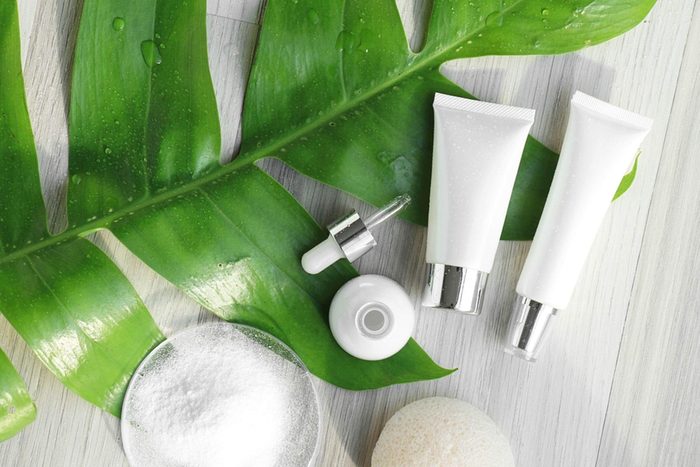
Myth: Moisturizers prevent aging
Truth: While it’s important to keep skin hydrated, Dr. Akhavan says it’s a common myth that moisturizer is the only product needed to prevent aging. “A well-moisturized face may mask fine lines and wrinkles by plumping up the skin. But moisturizers do not reverse or prevent aging in any way,” he says. In addition to your daily go-to (with SPF!), consider adding an antioxidant formula to keep those wrinkles at bay.
Next, find out if you are benefiting from your extensive skin care regimen.
